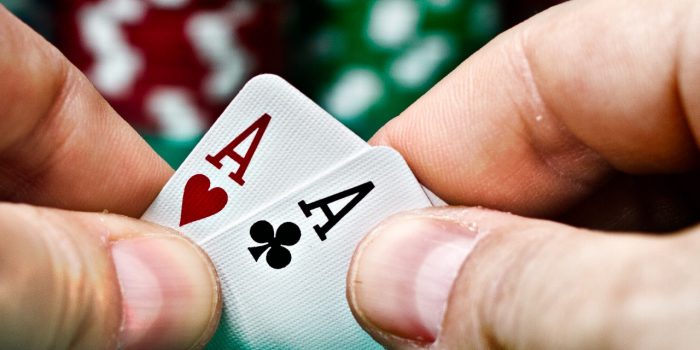The Power of Observation
Poker, particularly Texas Hold’em 텍사스홀덤, transcends mere chance and luck. It is an intricate arena where wit, strategy, and psychology intertwine, often determining the victor. In this in-depth article, we unveil the profound world of poker psychology. We delve into the mind games that take center stage at the poker table, demonstrating how mastery of these psychological intricacies can elevate you to an elite player.
The Art of Bluffing
Bluffing in Texas Hold’em is akin to an art form, requiring finesse and subtlety. It’s not just about pretending to possess a stronger hand than you hold—it’s about orchestrating an elaborate facade that persuades your adversaries of your hand’s might. Successful bluffing hinges on creating a sense of doubt and trepidation among opponents, compelling them to fold even when they hold the upper hand.
Emotion Management
Emotional intelligence plays a pivotal role in the world of poker. The ability to regulate your emotions is paramount, as your opponents perpetually seek chinks in your armor. Joy from a substantial win or frustration from a loss can impair your judgment. Adept players maintain a stoic veneer, masking their emotions to deny adversaries the upper hand. Grasping your emotional triggers and those of your opponents is a game-altering skill.
Understanding the Significance of Position
Position at the poker table is not just a physical aspect—it’s a psychological advantage. The later you seating, the more information you can glean. You can observe your opponents’ actions before deciding your course, giving you the edge. This psychological vantage point can be used to secure pots, craft well-informed bluffs, and maximize your returns.
Reading the Players
Deciphering your opponents is among the most critical aspects of Texas Hold’em. This entails understanding their playing styles, inclinations, and tells. Some players lean towards aggression, while others favor conservatism. Recognizing these patterns empowers you to predict their moves, granting you an upper hand in the game. The capacity to anticipate your opponent’s actions and think as they do distinguishes extraordinary players.
The Power of Patience
Texas Hold’em demands patience, a virtue that can determine your success. Impatience often leads to imprudent decisions and costly mistakes. Exercising restraint, staying focused, and not allowing losing streaks to erode your judgment is a hallmark of a seasoned player. It’s the patience and self-discipline to fold weaker hands and pounce at opportune moments that can result in substantial victories.
Leveraging Fear
Harness the power of fear in poker to dominate your opponents. Project confidence and control to make them quiver. By earning their respect and being intimidated by your skills, they will succumb to mistakes, giving you the upper hand. Maximize your dividends with this formidable psychological weapon.
The Art of Table Talk
Verbal communication at the poker table can serve as a potent instrument for those who can wield it effectively. Engaging in well-timed banter, posing strategic questions, or narrating calculated anecdotes can sway your opponents’ decisions. Using language to manipulate their thought processes and divert their attention from their strategy can be a formidable tactic for a skilled player.
In Conclusion
In the realm of Texas Hold’em, the psychological facet of the game is as vital as the cards in your hand. Proficiency in the art of observation, bluffing, emotional control, position, and player analysis can propel your poker skills to new heights. It’s a game of strategy, intellect, and psychology that rewards those who navigate the intricate web of human behavior. In Texas Hold’em, it’s not solely about the cards—it’s about the intricate mind games that transpire at the table.

